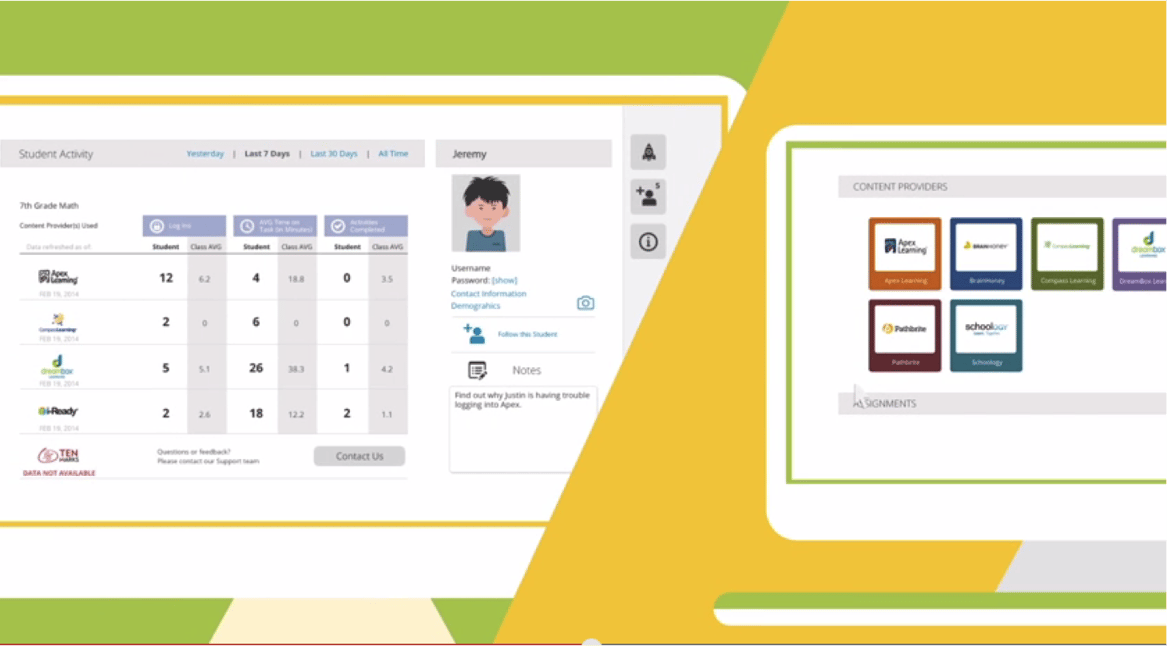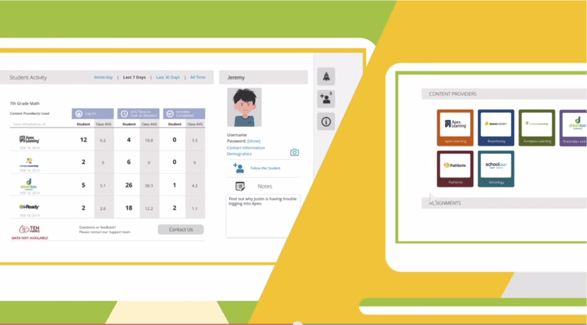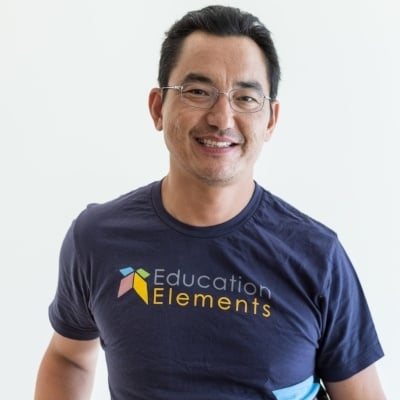
Highlight, Our PLP, And What is a PLP Anyway?
Personalized Learning | Teachers | Blended Learning | Classrooms

While our focus is on districts, I recently met with one of the premier private schools in New York City, which charges $40,000 per year tuition. Based upon what I can see, the teachers were very much personalizing learning students and the students were tremendously engage working in small groups, but they also had only 10-12 students in each class. When we sat down to meet the administration, they were starving for more data. Data to personalize learning more frequently and more accurately for each child. At the same time, they knew that data can often be overwhelming for teachers and eventually get ignored.
Personalized learning is not only about delivering relevant instruction to students, but providing feedback and supports to the student in real-time to maintain engagement. We personalize to make sure students get the most effective teaching and learning while they are in the zone. In some ways personalized learning tries to maximize the experience of a student’s Zone of Proximal Development - the space between what a learner can do without help and what the student can do with help so that the student is appropriately challenged.
It’s not possible to personalize without data points, whether quantitative or qualitative, information is required. Physicians offer you a diagnosis based upon examinations and symptoms; and technologies like Netflix, Facebook, LinkedIn, and Amazon make recommendations based upon usage and similarities data. In the classroom, it’s really hard for teachers to personalize learning for students without frequent data points. The more information teachers have about each individual student, the more they can adapt their lesson to meet the needs of each student. This is where the blended learning school models really help. Having more digital content and technology collecting information about student learning every day is an essential foundation for personalized learning.
Over the last few years, there has been a lot of confusion about learning management systems. The LMS seems to be a general bucket for any sort of technology related to instruction. [There is also the content management system (CMS), which is designed to be a repository of learning materials already built.] In generally, most LMSs are designed for instructors to build courses and make those course available to students online. Many LMSs have other tools related to teaching like gradebooks, messaging, discussion, etc., but fundamentally they are to support the online course resources developed by the instructor.
As personalized learning using technology becomes more widespread, there is a need for a Personalized Learning Platform (PLP). The need is not necessarily new, but the ability to address it, and the recognition of it, is. So what does a PLP need to do that is different than a LMS? In other markets, personalization platform are generally recommendation engines which serve two purposes: a) to help users discover relevant products/services; b) to help companies offer more product/services which best meet the needs of their customers. I think that the two primary jobs this type of platform in education, the job of a PLP is: a) to help students access & discover learning resources from a variety of different sources; b) to support teachers in collecting and analyzing the significant amount of information required to personalize learning for students every day.

(In our survey’s with some of the leading blended learning schools around the country, we are finding that the average teacher spend 10 minutes a week looking at and interpreting data.)
Education Elements spent the last three years working with blended learning schools understanding what these personalized learning environments need to fine-tune our personalized learning platform (PLP), Highlight. Highlight collects and analyzes data from many different digital content sources, and provides teachers with a daily set of key insights which helps teachers personalized learning everyday. Teachers no longer need to translate red-yellow-green color coded reports and spend time finding patterns in the reports - Highlight does it for them. This not only makes data driven instruction more sustainable, but you don’t have to be a data analyst to understand the reports. Like I mention in my blog post on edfactors, “Personalized learning starts with the teacher, but sustainable with technology.”
We are really excited about Highlight. It has been designed based on what we have learned from our work designing school models and supporting teachers. We have refined it based on what teachers say they need, and by watching and understanding what and how they will use a PLP and the data in it on daily basis. With Highlight we are making data actionable and unlocking the potential of any teacher to personalize learning for every student.
Stay tuned for more on Highlight. Over the next few months we will roll out features, talk about how Highlight’s algorithms can help ensure that your digital content is implemented with fidelity and show how accessible data drives outcomes. And contact us for a demo!
About Anthony Kim
Anthony Kim is a Corwin Press bestselling author, with publications including The New Team Habits, The New School Rules, and The Personalized Learning Playbook. His writing ranges the topics of the future of work, leadership and team motivation, improving the way we work, and innovation in systems-based approaches to organizations and school design. Anthony believes that how we work is the key determinant to the success of any organization. He is a nationally recognized speaker on learning and his work has been referenced by the Christensen Institute, iNACOL, EdSurge, CompetencyWorks, Education Week, District Administration, and numerous research reports. In addition to his writing, Anthony is the founder and Chief Learning Officer of Education Elements, a trusted partner and consultant to over 1,000 schools nationwide. Anthony has been the founder of several companies across multiple industries, including online education, ecommerce, and concerts and events.


